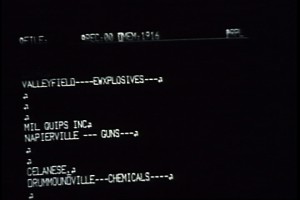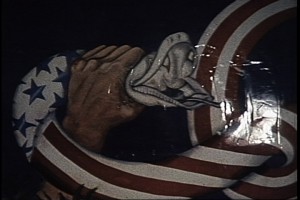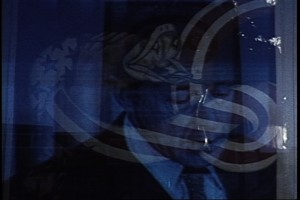


Resisting The Pharaohs, 1984; 33:46 minutes
The McGill Daily, 15 November 1984
Resisting The Pharaohs – a film by Julian Samuel (1984; 33:46 minutes)
Reviewed by Chris Cavanagh
If you were told that Canada had contributed to the development of a lethal gas-fence to stop illegal immigration on the US-Mexican border, would you believe it?
In all likelihood you might or, at least, you might not disbelieve it. The major media is rarely confronted by an audience that demands accountability, and most consumers of information do so with little thought to what they receive.
Would you look further into such a story or simply add it to the growing list of anecdotal episodes that make most of reported news happenings?
Resisting The Pharaohs by Julian Samuel, an independent film-maker from Montreal, challenges the faith of uncritical consumers of information who read newspapers because the cereal box has been read twice over, watch TV to be entertained by starvation in Ethiopia, war in Lebanon, and political suicide in the United States.
Resisting The Pharaohs begins with an indictment of the Canadian media and arms manufactures as complicitus in the continuing erosion of individuals critical faculties.
A rapidly changing montage of images (lists of Montreal-area arms contractors, bank fronts, shopping plazas) juxtaposed with voice-over narration of fictional news events makes a strong expressionistic comment on the connection between media and arms manufacture. Names and addresses of munitions companies scroll up the screen of a visual display terminal, characters are deleted to music fit for a cast-of-thousands Hollywood epic.
We hear ludicrous information about an accidental use of a nuclear bomb from a voice-over followed by a somewhat surprised and muted newscaster. Much information is related about Canada’s role in the sale of arms to the Third World.
The film does not develop any critical distance between information that is quite obviously lampoon and that which is legitimate. No information can be trusted and all of it must be suspect.
This is the most powerful thrust of the film, though it lacks a clear articulation of this point. The effect of these anecdotes taken all together is to have one’s belief stretched beyond its limit. At this point it becomes imperative for the viewer to ask the director if the information is true or corroborate the information by some other means. Either way the viewer is encouraged to take a more active and participatory role in the transmission and consumption of information.
The latter half of the film concentrates on indicting the church of complicity with the military-industrial complex. The images here, as throughout the film, are meant to shock; a rather simplistic reaction to evoke over such a complex subject. Samuel seems to overestimate the power of shock to educate and his approach suffers from this as much of the film provokes reaction rather than critical thought.
The polemical nature of this film demands a more cohesive approach to a criticism of the interconnections of church, state, business and media. The disjointedness and simplistic use of images and the seemingly deliberate sloppiness of the production are meant also to shock and leave the viewer with a vague sense that these estates are somehow related. This film does not empower the viewer to begin criticizing these interconnections except in the most rudimentary sense. And it is not certain that even on this basic level it does not do this negatively. The structures of church, state, media and business are very complex and, for the most part, hidden from the people. Especially hidden are the similarities between these four estates.
The continuing centralization of the structures of the mass media and the interrelationship between media, business and government make it imperative that a dialogue begins in society about these phenomena. These structures become more distant and less responsive to the public whom, we are led to believe, they are supposed to serve. People must empower themselves to alter the course of this increasing process of centralization that is part of the spiral towards nuclear war. We must begin to analyse this process and set up a counter-process that will slow and finally halt the arms race.
Julian Samuel has made a brave attempt at juxtaposing these structures through the medium of film, but is weak in contributing to a popular dialogue that is the first step in trying to change these structures.
*
